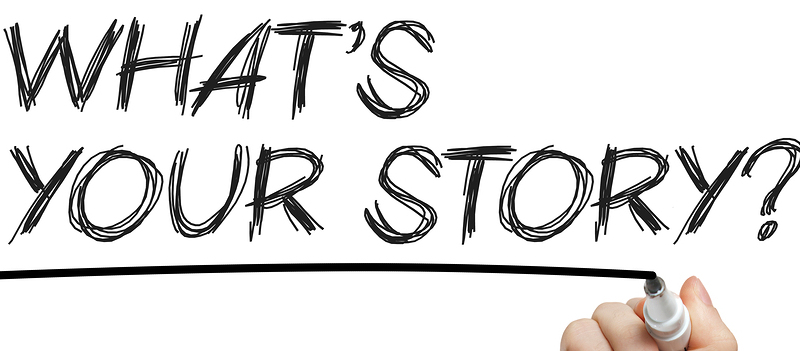Do you listen to yourself talk? What stories do you make up? You can learn a lot about yourself if you can detach enough to just observe and listen.
To have self-awareness, it’s important to listen when you tell your stories, especially ones you tell yourself about work and the people closest to you. That’s when you often fall into self-deception and cognitive biases.
“The most important story you will ever tell about yourself is the story you tell to yourself.” ~ Jim Loehr, The Power of Story, Free Press, 2007
Does this ever happen to you? You race around, barely getting things done, making sacrifices, and it turns out your efforts weren’t needed anyway. But we told our self a story about how urgently we needed to act.
The reason this happens is because we tell ourselves faulty stories, full of erroneous assumptions.
Stories like this happen to everybody. Think about it. We operate with a variety of organizing principles that swirl around our brains. They often prompt us to work harder and faster.
They are a primary driver of energy, even when the narratives in our heads aren’t getting us any closer to achieving the life we want.
Even the most successful people, with brilliant professional histories, carry old stories in their minds. One of the most commonly shared (and seriously flawed) beliefs is that simply spending time on something will generate positive results. If you buy into this premise, then you’re probably out of time quite often.
I believe that what’s truly needed for success is high-quality, focused energy. More than time, energy is necessary for achieving results.
As performance psychologist Jim Loehr writes in The Power of Story (Free Press, 2007), “…the key to almost all of our problems, more fundamental even than poor energy management, is faulty storytelling, because that’s what drives the way we gather and spend our energy.”
I think energy is probably the most precious resource we possess—in fact, it may be at the heart of the solutions to our most pressing problems. What we tell ourselves, however, causes us to lose valuable energy, leaving us too tired or too stressed to perform at optimum levels.
Finding My Own Faulty Stories
After reading The Power of Story book by Loehr, I’ve been thinking a lot about the things I tell myself. In fact, it’s amazing how often I catch myself storytelling. Fortunately, many of my stories to myself are positive ones. They encourage me and are a source of energy. It helps me to keep stress at bay when things get too busy.
Everything in our heads seems to be a constant spin of narratives. Some are good ones; they really do light a fire. And others seem to drain us.
To generate the kind of energy needed to fulfill one’s greatest desires and goals, we need to identify the falsehoods — the erroneous old chestnuts that we tell ourselves over and over again.
If you’re like me, you rarely examine them or question their usefulness. We simply go about our workdays and lives, telling ourselves these familiar tales to convince ourselves that we’re OK.
Here are a few test questions to help you identify the ones that don’t work. Answer the following questions to determine whether your stories are working to your advantage:
- Do you feel energized?
- Are you managing your time well?
- Do you get things done?
- Are you living the life you dreamed?
If you’ve answered “no” to any of these questions, then your stories are probably not working like they should for you. Now’s the time to develop alternative stories that help you to act efficiently and with improved energy.
What do you think about this? Stay tuned for my next post on why you should think about changing your story.

Did You Enjoy This Article?
Join thousands of other smart business owners like yourself & get our Proffittable Times newsletter.
It's filled with actionable content you can apply immediately.
Sign up now to get started!
– Coach Nancy










